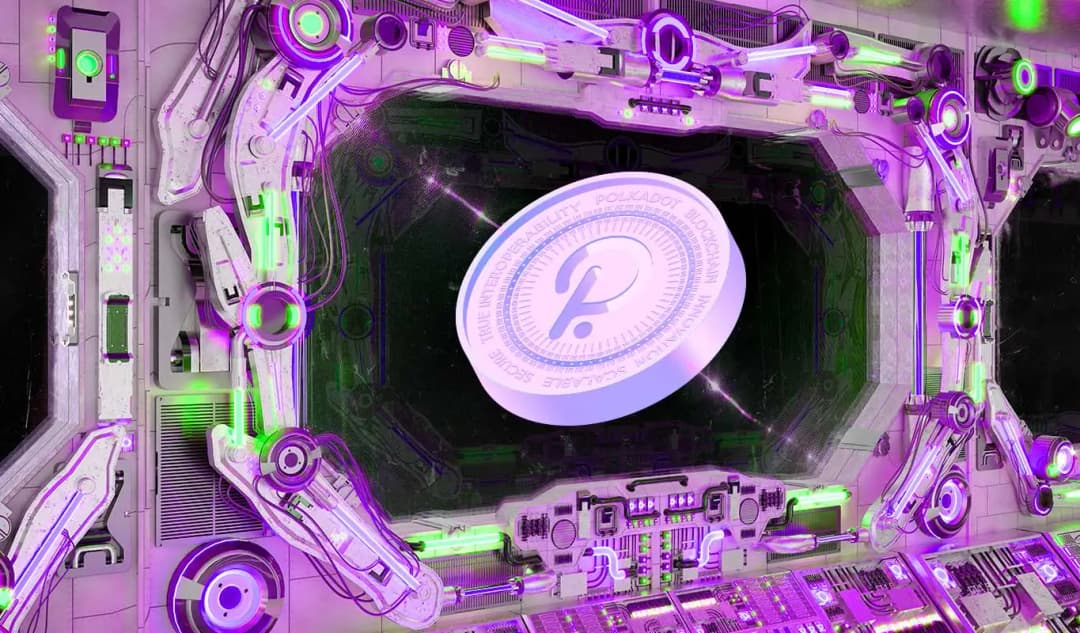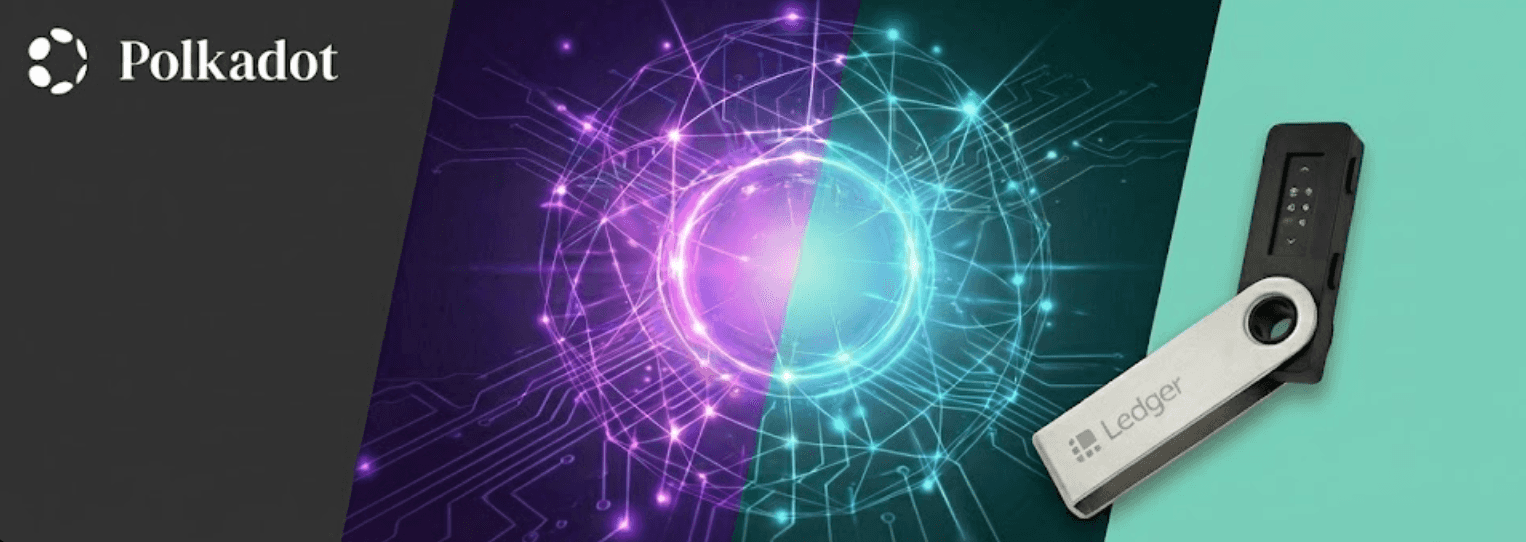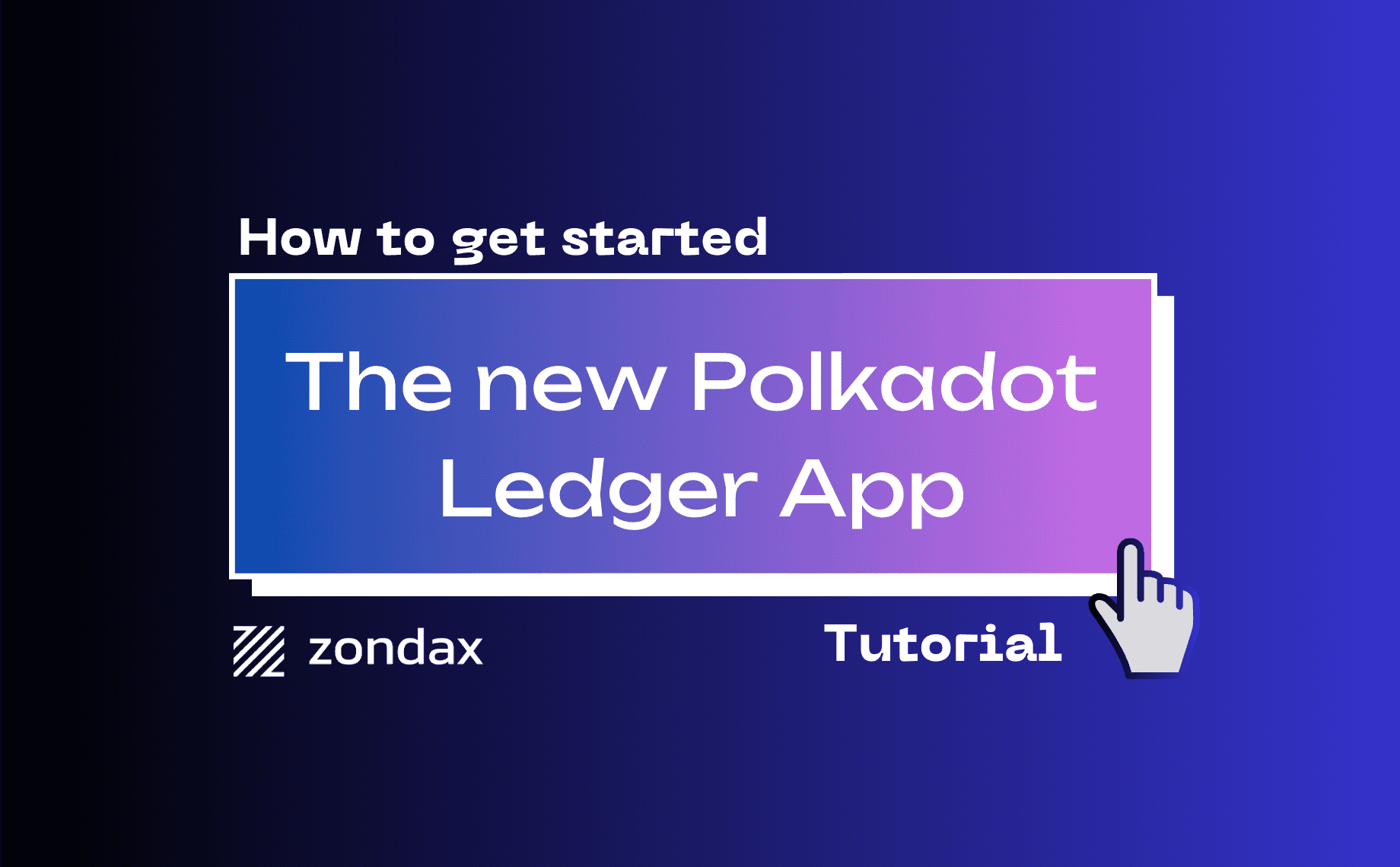The Generic Polkadot Ledger App Proposal
August 3, 2023
–
4 min read
In the dynamic world of blockchain technology, Zondax and the Kampela team have put forth an open proposal in the Polkadot treasury: metadata for offline signers

In the dynamic world of blockchain technology, Zondax and the Kampela team have put forth an open proposal in the Polkadot treasury. This proposal aims to provide a robust and secure solution to the community: a Generic Polkadot Ledger App for the Polkadot ecosystem. This solution has been a long time in the making, with extensive discussions, brainstorming, analysis, and numerous options considered and discarded in collaboration with Parity. Finally, we have arrived at a worthy conclusion for the ecosystem.
This approach is designed with a long-term perspective, prioritizing security and, most importantly, collaboration. This article breaks down the proposal in simple terms, explaining its importance, the plan, the team behind it, why it matters, and future plans.
Understanding the Proposal
The proposal, titled "Metadata for Offline Signers," is about creating and implementing a new metadata protocol that is friendly to offline devices. However, the final solution is a Generic Polkadot Ledger App. This app aims to handle all parachains and relay chains without being affected by runtime upgrades, providing a single application for the complete ecosystem without compromising security.
Why It Matters
The Polkadot ecosystem has been contemplating the idea of developing a generic or universal Polkadot Ledger application to streamline operations and improve efficiency. This generic app would theoretically allow users to interact seamlessly with multiple Parachains and provide numerous benefits for the community.
One of the primary reasons behind the need for a Generic Polkadot Ledger app is the frequent runtime upgrades conducted by the chain. These upgrades result in breaking changes for the Ledger app, requiring not only development but also testing and a security review process. Additionally, as Polkadot's runtime upgrades often impact Parachains, the need for updates, development, and review extends to their Ledger apps as well. All of this results in significant costs and time for each parachain.
The approach
The plan is to change the runtime code to support a new method of transaction signing that includes a proof of metadata used for transaction rendering to the user. This will involve reducing the size of the metadata and ensuring its authenticity. It's a complex process, but one that could revolutionize how transactions are handled on the Polkadot network.
The proposed solution includes metadata into the signature, which is the simplest part - add some hash of metadata to signing inputs and sign. The size of data stored on chain does not change - except for a flag that would indicate whether this new feature is used or is data signed as before (so that cold signers could force "with metadata always" rule if they can or not force it if they cannot).
The tricky part is to reduce the transferred metadata size. For small embedded devices like Kampela (64kBit internal RAM) and Ledger (4 kB RAM), shortening the metadata is essential. Only a small part of metadata is really needed for decoding. The proposal by the Substrate team was to represent metadata hashes as a Merkle tree and use it to securely and scalably generate the metadata validity proof on a cold device.
The Team
The proposal is a joint collaboration between Alzymologist Oy and Zondax.
Alzymologist Oy is a laboratory, research, and consulting company based in Finland. They have a multidisciplinary team of specialists across many fields, from IT and security to chemistry and biology. Alzymologist team develops Kampela project, a working prototype of which was demonstrated at Polkadot Decoded event. Alzymologist team was developing Parity Signer (later renamed to Polkadot Vault) at times of 5.0.1 release and introduced several important standards and protocols still used there. Their extensive expertise on low footprint devices also includes wearable electronics phase radars and civilian science environmental sensors that are currently sending live radiation monitoring data from Chernobyl region in Ukraine.
Zondax AG is a growing and distributed team with experience and projects for more than 50 blockchains. Zondax has been contributing to the Substrate ecosystem since 2018-2019. The team has received and completed a large number of W3F grants and currently maintains most Ledger apps for the ecosystem. Apart from the substrate ecosystem, Zondax participates and contributes to other large ecosystems such as Cosmos, Avalanche, Algorand, Filecoin, ICP, etc. Their team includes experts in most blockchain aspects, cryptography and programming languages.
Both teams bring a wealth of experience and expertise to the table, promising a robust and efficient solution to the current challenges.
The Advantages of a Generic Ledger App
The potential advantages of a generic Ledger app are considerable:
1. Transaction Signing for All Substrate-Based Chains: This would provide unprecedented convenience and a unified user experience.
2. Resilience to Runtime Upgrades:The ability to maintain compatibility in the face of continuous runtime upgrades is invaluable.
The Future
After delivering the project, the team plans to maintain it and spread its implementation into the whole ecosystem where its usage is relevant. We also plan to continue innovating and developing new features that would benefit the relay chain, parachains, current and future users, and overall network security.
This solution would enable teams to keep innovating and developing new features. This would benefit:
- Relay chain
- Parachains
- Current and future users
- Overall network security
In conclusion, the Generic Polkadot Ledger App proposal represents a significant step forward in enhancing transaction security and network resilience in the Polkadot network. It's a testament to the continuous innovation in the blockchain space. We are thrilled with the results of the vote and are confident that this is the path the ecosystem needs to follow collaboratively. We believe in robust, high-quality, and above all, secure solutions that seek the benefit of all users. Please note that the implementation of this solution will take a few months. We look forward to seeing the positive impact it will have on the Polkadot community.
Read More
Fil Madrid: A collaboration between Zondax and Filecoin Foundation
Zondax and Filecoin Foundation's event in Madrid drew blockchain enthusiasts to explore Filecoin's technology and the future of web3
Polkadot Ledger App: Improved Compatibility and Transaction Clarity
The Polkadot Ledger App has been updated with Gen5 support, a modern NBGL UI, clearer asset transaction displays, and improved signing reliability. The new version is already available to install via Ledger Live
Ensuring a Smooth Transition: Using the Migration App for the Universal Polkadot Application
The new Polkadot app is here! Use the Migration App on Ledger to easily transfer your funds from your existing account to a new account with the updated Polkadot app.
Other Articles

April 26, 2024
Zondax and Filecoin Foundation's event in Madrid drew blockchain enthusiasts to explore Filecoin's technology and the future of web3

News
January 6, 2026
The Polkadot Ledger App has been updated with Gen5 support, a modern NBGL UI, clearer asset transaction displays, and improved signing reliability. The new version is already available to install via Ledger Live

Security
July 3, 2024
The new Polkadot app is here! Use the Migration App on Ledger to easily transfer your funds from your existing account to a new account with the updated Polkadot app.
News
The Polkadot Ledger App has been updated with Gen5 support, a modern NBGL UI, clearer asset transaction displays, and improved signing reliability. The new version is already available to install via Ledger Live

Security
The new Polkadot app is here! Use the Migration App on Ledger to easily transfer your funds from your existing account to a new account with the updated Polkadot app.
